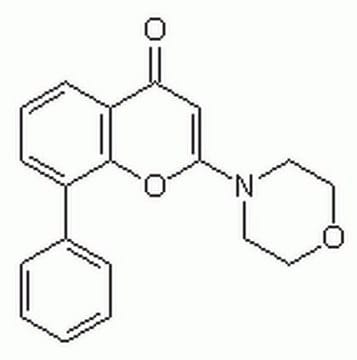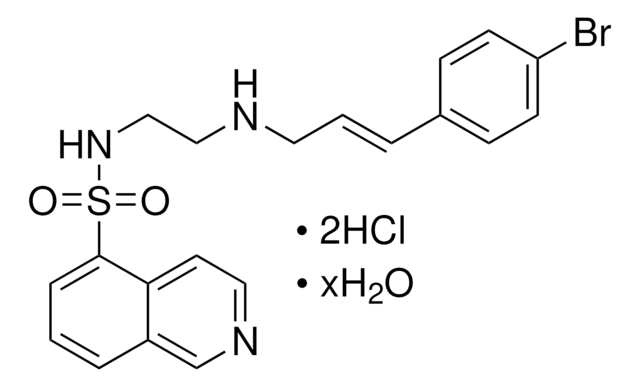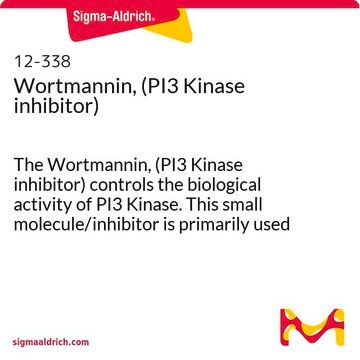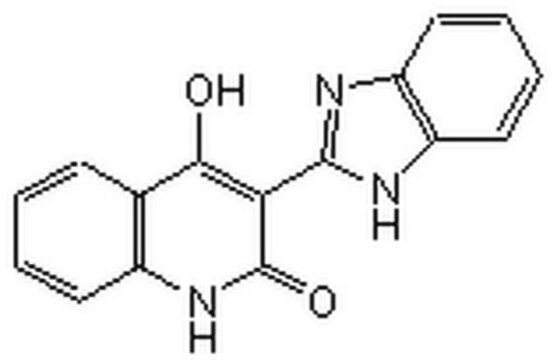L9908
LY-294,002 hydrochloride
from microbial (Staphylococcus roseus), ≥98% (HPLC), solid, PI3K inhibitor
Synonym(s):
2-(4-Morpholinyl)-8-phenyl-1(4H)-benzopyran-4-one hydrochloride
About This Item
Recommended Products
product name
LY-294,002 hydrochloride, solid, ≥98% (HPLC)
biological source
microbial (Staphylococcus roseus)
Quality Level
Assay
≥98% (HPLC)
form
solid
color
white to off-white
solubility
DMSO: >5 mg/mL
H2O: insoluble
storage temp.
2-8°C
SMILES string
O=C1C=C(Oc2c1cccc2-c3ccccc3)N4CCOCC4
InChI
1S/C19H17NO3/c21-17-13-18(20-9-11-22-12-10-20)23-19-15(7-4-8-16(17)19)14-5-2-1-3-6-14/h1-8,13H,9-12H2
InChI key
CZQHHVNHHHRRDU-UHFFFAOYSA-N
General description
Application
- phosphoinositide 3-kinase (PI3K) in human lung cancer cell line
- autophagy in mesenchymal stem cells (MSCs).
- serine/threonine-specific protein kinase (AKT) signaling in fibroblasts and cardiac cells.
Biochem/physiol Actions
Features and Benefits
Storage Class Code
11 - Combustible Solids
WGK
WGK 3
Flash Point(F)
Not applicable
Flash Point(C)
Not applicable
Personal Protective Equipment
Certificates of Analysis (COA)
Search for Certificates of Analysis (COA) by entering the products Lot/Batch Number. Lot and Batch Numbers can be found on a product’s label following the words ‘Lot’ or ‘Batch’.
Already Own This Product?
Find documentation for the products that you have recently purchased in the Document Library.
Customers Also Viewed
Articles
We presents an article on Autophagy in Cancer Promotes Therapeutic Resistance
Cyclic nucleotides like cAMP modulate cell function via PKA activation and ion channels.
Discover Bioactive Small Molecules for Kinase Phosphatase Biology
Discover Bioactive Small Molecules for Lipid Signaling Research
Our team of scientists has experience in all areas of research including Life Science, Material Science, Chemical Synthesis, Chromatography, Analytical and many others.
Contact Technical Service












